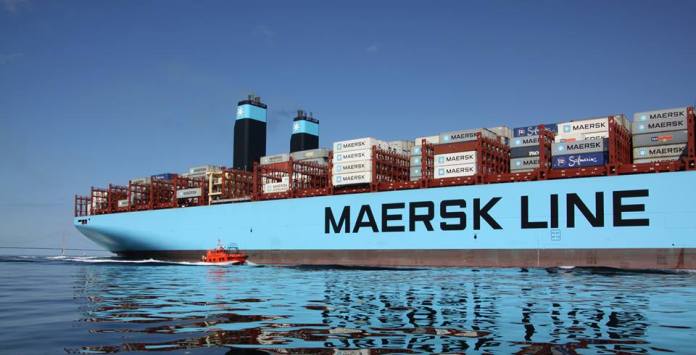

AP Moller-Maersk, the global shipping giant that is expected to deliver record revenues and EBITDA of $22-23 billion for 2021, has placed one of the biggest orders for Hydrogen powered vehicles, with an order for 12 methanol-fueled container vessels with Hyundai Heavy Industries. The ships will be delivered in 2024 and 2025.
Maersk a Danish heavyweight is an integrated container logistics company that has had an outstanding year thanks to the massive spike in container freight rates post Covid disruptions worldwide. With a target to reduce CO2 emissions by 1.5 million tonnes thanks to these vehicles, Maersk is also hopeful of ensuring it is ‘green hydrogen’ that powers these vehicles, by using Hydrogen produced either from biogas/biomass or renewable hydrogen combined with captured carbon dioxide.
The company recently has set a net-zero greenhouse gases (GHGs) emissions target by 2040. This marks a decade ahead of the 2050 ambition of the Science-Based Target initiative to limit global warming to 1.5 degrees Celsius.
Methanol (CH3OH) is carbon neutral green fuel. It is produced either from biogas or renewable hydrogen combined with captured carbon dioxide. There are three potential alternative fuels under consideration to replace pollution-causing fossil fuels: hydrogen(H2), ammonia (NH3), and methanol (CH3OH).
Methanol is the most energy dense fuel (16MJ per litre) by volume among the three aforementioned fuels. It is also easiest to handle. The only setbacks or challenges to the fuel’s adaptation are difficulty in procuring enough bio methanol or electro-methanol (derived from green hydrogen). In addition, the ports will need new bunkering facilities for the ships to be refueled.
Currently, the global maritime sector emits 940 million tonnes of CO2 as per International Maritime Organization (IMO), a UN body. This constitutes about 2.5 percent of the world’s greenhouse gases. The sector is largely dependent on fossil fuels. Bunker fuel, the preferred fuel in use across ships worldwide due to its lower cost, is one of the most polluting fossil fuels. Derived as a residue from crude oil distillation, heavy fuel oil had a much higher sulphur content which, following combustion in the engine, ended up in ships’ emissions. Now, the vast majority of ships are using very low sulphur fuel oil (VLSFO) to comply with the new limits set by the IMO.
On 1 January 2020, a new limit on the sulphur content in the fuel oil used on board ships came into force.Known as “IMO 2020”, the rule limits the sulphur in the fuel oil used on board ships operating outside designated emission control areas to 0.50% m/m (mass by mass) – a significant reduction from the previous limit of 3.5%.
Houston headquartered Syzygy Plasmonics has announced the beginning of Front-End Engineering and Design (FEED) with…
State owned THDC India Limited (THDCIL) has announced the successful commencement of COD process of…
The Uttar Pradesh government is preparing to launch the Uttar Pradesh Sustainable Aviation Fuel (SAF)…
India’s cooperative sugar industry is urging the government to revise ethanol procurement prices and extend…
The Indian Biogas Association (IBA) has announced a key step taken to boost biofuels sector…
In a key development that would bolster the development of green hydrogen in the North…